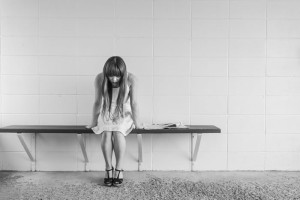Any athlete who competes long enough will experience an injury. Some injuries sideline them for a day or two, some a week, some a year, and some are career-ending. But every one of them is difficult to deal with and must be treated. Some even go so far as requiring surgery.
Just as physical injuries require treatment, so do emotional injuries. Crutches, bandages, and ice packs won’t heal these emotional wounds. So how do you bounce back from these injuries?
Sometimes, the only solution is the surgery of forgiveness. Forgiveness is not approving or excusing what someone did, and it’s not necessarily reconciling with the person who caused the injury. It’s not pretending you aren’t hurt and it is not forgetting what happened.
For example, if you have surgery on your physical body, you have a scar to remind you of what took place. Emotional scars exist as well, even after the surgery of forgiveness. Over time, the scar’s prominence fades, but if the scar is bumped, the pain returns. For that reason, we can also understand that forgiveness is not a one-time thing. You may have to forgive a person over and over again until you feel relief.
Forgiveness is a Decision to Obey God
 In life, we should forgive because God forgives us and commands us to forgive one another in Ephesians 4:32 and Matthew 6:14-15. Why does God ask us to forgive? Because He knows that forgiveness is the only way to break the power of anger, bitterness, and pain. The difference between “bitter” and “better” is the letter “i.” I get to choose which I become.
In life, we should forgive because God forgives us and commands us to forgive one another in Ephesians 4:32 and Matthew 6:14-15. Why does God ask us to forgive? Because He knows that forgiveness is the only way to break the power of anger, bitterness, and pain. The difference between “bitter” and “better” is the letter “i.” I get to choose which I become.
In Romans 12:19, God says that vengeance is His, not ours. That means we can let God deal with the other person because they are not our responsibility. Our responsibility is simply to forgive. Refusing to forgive only hurts us and allows the injury to fester until its poison seeps in, spreads, and shuts down our effectiveness for Christ.
Today, don’t allow unforgiveness to sideline you. Submit to the surgery of forgiveness and let the healing begin. Think about it.
So, What’s The Play Call?
- Who do you need to forgive?
- What is keeping you from releasing this person to God?
- When will you undergo the surgery of forgiveness?
Post-workout Stretch
“For all have sinned and fall short of the glory of God.” – Romans 3:23
“Friends, do not avenge yourselves; instead, leave room for His wrath. For it is written: Vengeance belongs to Me; I will repay, says the Lord.” – Romans 12:19
“And be kind and compassionate to one another, forgiving one another, just as God also forgave you in Christ.” – Ephesians 4:32




